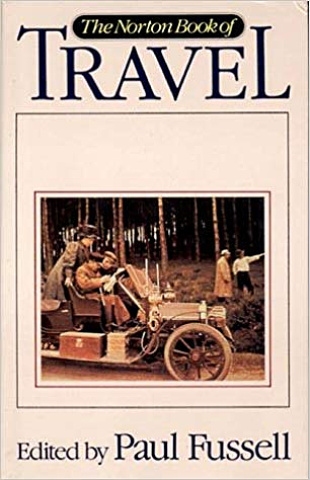"Why is travel so exciting? Partly because it triggers the thrill of escape, from the constriction of the daily, the job, the boss, the parents. 'A great part of the pleasure of travel,' says Freud, 'lies in the fulfillment of . . . early wishes to escape the family and especially the father.' There is thus about travel almost the frisson of the unlawful. The escape is also from the traveler's domestic identity, and among strangers a new sense of selfhood can be tried on, like a costume. The anthropologist Claude Lévi-Strauss notes that a traveler takes a journey not just in space and time (most travel being to places more ancient than the traveler's home) but 'in the social hierarchy as well'; and he has noticed repeatedly that upon arriving in a new place, he has suddenly become rich (travelers to Mexico, China, or India will know the feeling). The traveler's escape, at least since the Industrial Age, has also been from the ugliness and racket of Western cities, and from factories, parking lots, boring turnpikes, and roadside squalor. Every travel poster constitutes an implicit satire on the modern scene, testifying to the universal longing to escape. The most 'advanced' societies prove the most loathsome, and as Nancy Mitford has said, 'North Americans very naturally want to get away from North America.'
"But if travel offers the thrill of quasi-felonious escape, it also conveys the pleasure of learning new things, and as Aristotle observed over 2,300 years ago, not only philosophers but people in general like learning things, even if the learning comes disguised as 'entertainment.' It is as learners that explorers, tourists, and genuine travelers, otherwise so different in motives and behavior, come together. Explorers learn the contours of undiscovered shorelines and mountains, tourists learn exchange rates and where to go in Paris for the best hamburgers, and travelers learn . . . not just foreign customs and curious cuisines and unfamiliar beliefs and novel forms of government. They learn, if they are lucky, humility. Experiencing on their senses a world different from their own, they realize their provincialism and recognize their ignorance. 'Traveling makes one modest,' says Flaubert. 'You see what a tiny place you occupy in the world.' Travel at its truest is thus an ironic experience, and the best travelers — and travel-writers — seem to be those able to hold two or three inconsistent ideas in their minds at the same time, or able to regard themselves as at once serious persons and clowns."
